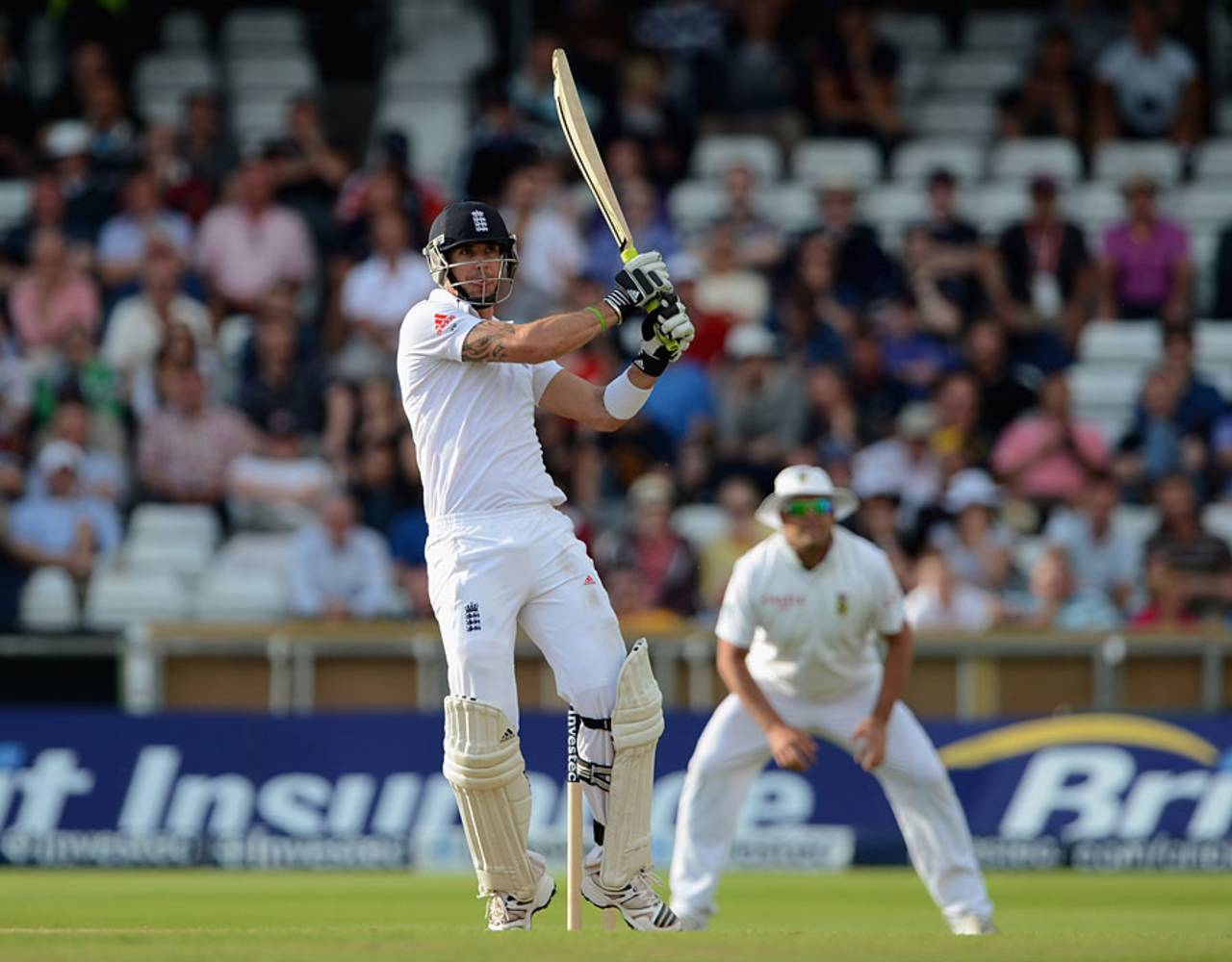The divine madness of Kevin Pietersen
Players who compel you to watch them and be engaged in the game, when absent, stir a yearning in the spectator that has nothing to do with team loyalty
Jon Hotten
May 22, 2013, 2:11 PM

His absence leaves a hole only he can fill • Getty Images
There is a certain uncomfortable clamminess in contemplating the England batting order without Kevin Pietersen in it. Is that it? you find yourself asking, this collective of relentless technical proficiency, with its whiff of executed skills and coaching pathways? Cook, Compton, Trott, Bell, Root, Bairstow… they're all very good and everything, but you know, is that really it?
The deep pleasure in batting lies in its idiosyncrasy. It can be as individual as a fingerprint. Boycott was the supreme technician, yet the joy of repetition was just one half of watching him play. His obsessive immersion in his task, the amount of meaning that it carried for him and the almost comical value he placed upon his wicket could become mesmerising. Sometimes he would bat with Gower, whose apparent ambivalence to all of the aesthetic beauty he was creating etched even more deeply the differences between two members of the same side. Lara sometimes entered a place where few batsmen have gone, a fabled Valhalla where boundary followed boundary for hour upon hour, day upon day, a feverish dream of extended mastery. There was Viv Richards, a cruel emperor satisfied with nothing less than the subjugation of his enemy, and Adam Gilchrist, the best friend you never had, playing a World Cup final like it was a Sunday afternoon in the park. And then Sehwag and his stunning distillation of a complex skill to an equation that read "see ball, hit ball".
Amla, Inzi, Yousuf, AB, Gayle… there are many more, and nothing links them save for one thing. They had and have "it", whatever you want to call it, a watchability best defined by the feeling left behind when they got out: an emptiness that rose above team loyalty and extended into a love for what the game could be. Simply put, they invested the spectator in their immediate destiny; they encouraged a sense of the possible.
If the departed era of Australian dominance proved anything, it was that players like these are a gift. They cannot be summoned or produced, however competent the systems beneath them. Rather, good systems produce good players, like those in England's top six. Their absolute competence is proof of a strong and determined culture in the organisation.
As his entire career has suggested, Pietersen is an outsider, an outlier, a one-off. What he brings to England is a touch of divine madness, a strange kind of fury that changes matches, alters series, compels people to engage with him and with the game. Nothing becomes him more than the effect of his absence. It leaves a hole that only he can fill.
It's a hard thing to consider without appearing to disparage the rest of England's batting. They are admirable players, not flattered by their stats. Cook and Trott have a murderous consistency, and Trott offers the bonus of a deep well of ticks and quirks at the crease. Bell is that strangest of things, an uninteresting enigma. He offers plenty of vacuous beauty. Joe Root is, in the nicest possible way, fighting stylistic comparisons to Mike Atherton. Pietersen remains their galvanising force, the one amongst them who genuinely commands the stage.
It's a quality that feels like it is more highly valued by spectators than anyone else. Coaches prize consistency and predictability because their teams exist in a hostile universe filled by the unexpected and the unwelcome. Control the controllables is at the centre of their credo, and a talent like Pietersen's is essentially uncontrollable.
What will England do when he has gone? This week the ECB set out its four-year plan for a cycle that ends in 2017. That cycle will probably see the end of Pietersen, Anderson, Swann and other match-winners. Their occasional absences have suggested that the layer of talent beneath them is perhaps not as deep as it seems.
Yet those are the professionals' concerns. The history of cricket proves that their ebb and flow are beyond the control of coaches and systems, and the survival of the wider game doesn't depend on them. Instead it relies on the unpredictable and random emergence of greatness in all of its variety. Kevin Pietersen is unimaginable in his way, and the man who eventually fills the kind of hole he will leave is equally difficult to foresee. In 2005, Pietersen hit Warne and McGrath into the pavilion at Lord's, snap-hooked a short ball back past Brett Lee at The Oval, introduced the flamingo through midwicket. In 2006, he switch-hit Murali for six and began a debate about the rules of the game. These things are hardly commonplace now - back then, they emerged from nowhere; he summoned them.
He summoned people to watch them, too. An England side without him simply demonstrates the scale of his achievement. How we miss him when he's not there.